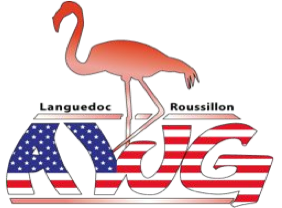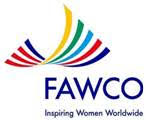I was starting to worry that it would take me as long to write the report of the meeting as it took the author to write the book....
Five members and one guest met on September 11th to discuss Gardens of Water, by Alan Drew. Jan had recommended the book. She said she just pulled it off a shelf in a bookstore to read on the plane on her way back from the US. Her copy had notes about the author at the end of the book. Alan Drew lived in Turkey and taught English literature for three years at a private high school in Istanbul. He and his wife arrived there only four days before the devastating 1999 Marmara earthquake. PKK founder Öcalan was, in fact, arrested the day before the earthquake. Jan noted that Turkish Prime Minister Erdogan was almost taken to court by the Turkish judiciary for using the term Bey, the equivalent of our Mr., to refer to Öcalan. Öcalan is imprisoned on an island, referred to in the book as Dog Island, and PeggyF made a comparison to a Dog Island (off the coast of Tunisia?), where dogs with rabies are quarantined. After the earthquake, Alan Drew met missionaries who were helping the relief effort, but who were, at the same time, trying to convert people. Drew started writing the book after his return to the US. It took him four years to finish it. The acknowledgments in Jan's copy of the book include a list of books the author said were "indispensable" to him in the production of the novel, books about the Turks, the Kurds, the Koran, Islam, and terrorism, to cite just a few. Jan said that, from what she has read, she has the impression that the Kurds are more willing to accept the status quo now that the Turkish government has agreed to repair roads and provide better education (does this mean education in the Kurdish language??), but she feels that the book is very authentic with regard to the Kurdish situation in 1999. Jan questioned the possibility of tourists taking photos in a mosque during prayer hours, as described in one scene in the book, but said that her research shows that it depends on the mosque. At the Blue Mosque, no visitors are allowed during prayer periods.
As to the question of whether the story would have been different if Marcus and his son Dylan had been from a country other than the US, Chris stated that they had to be American to provide the necessary conflict. The American military supplied the jeeps and guns which were used by the Turks to kill the Kurds. We also noted that the missionaries had to be American; although there are European missionaries, it's the Americans who are more "visible." Chris reminded us that the author of Three Cups of Tea was the son of missionaries. Perhaps missionaries and their offspring are more "adventurous." As an aside, Jan said that some young missionaries had hiked over the border into Iran, supposedly without realizing where they were. That might be recklessness rather than adventuresome spirit. "Oh, I have a cell phone; someone will rescue me."
Jan objected to the author's suggesting that Dylan was bi-polar - "why did he throw that in?" His years in Turkey, his missionary father, the death of his mother... all that was enough to make anyone react "differently." PeggyF, who has closer contacts with the Arab world than most of us, felt that there were things that were not "realistic." She could not imagine a daughter running away or sleeping with a boy. One reply was that, because of the earthquake, Irem was exposed to a different way of life. We mentioned the imagery of tent walls as the only separation from the world, from other humans. We wondered how a father could kill his daughter just to save the family's dishonored name.
Although Maggie said she found the author's style to be concise and easy to ready, Anne said that she could tell that this was a first novel. She felt that there were moments when it didn't "flow." She agreed that things like bi-polar had just been thrown in. PeggyF said that she liked the balance and appreciated the non-fanatical muslims and the non-fanatical missionary Americans. All the characters were simply human beings, and all were equal in loss. Jan mentioned that there have been so many devastating earthquakes in Turkey, but mosques are rebuilt, and the Turks live with the risk, just like Californians. She compared the situation to post-Katrina New Orleans, where, in a developed country, there were poisonous gas leaks and people living in trailers. Anne said she was touched by the scenes regarding poverty, and by the lack of social services and health care. We drew a comparison to Romeo and Juliet, the star-crossed lovers, this time not just from different families, but from different cultures. The fact that there's a teacher's guide on the internet can be construed as a sign that the book is recommended reading for adolescents.
* * * * * * * *

